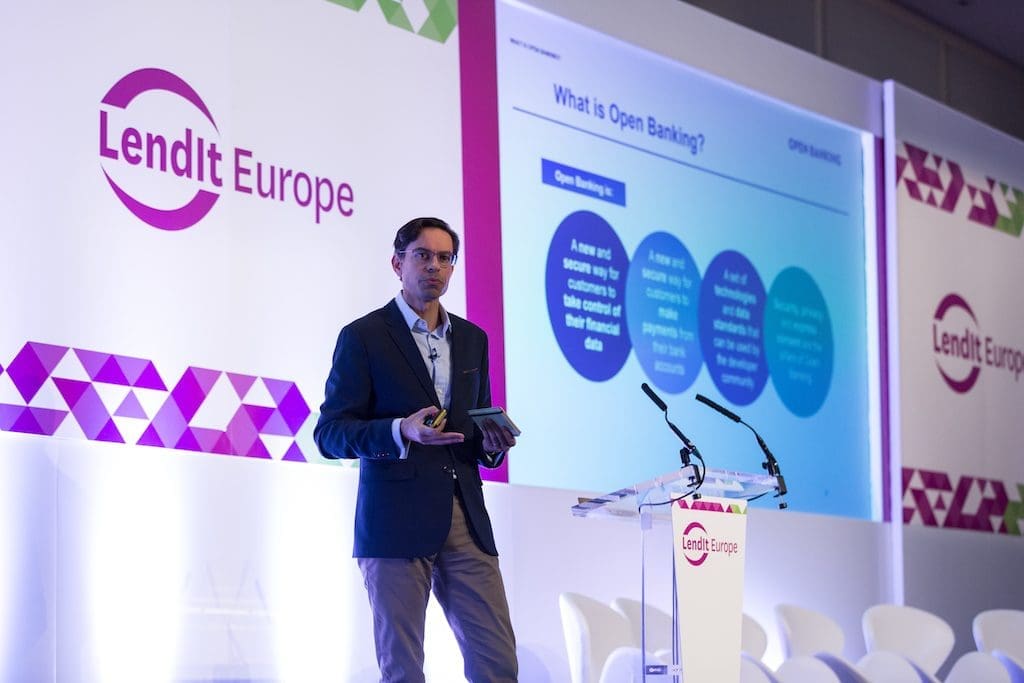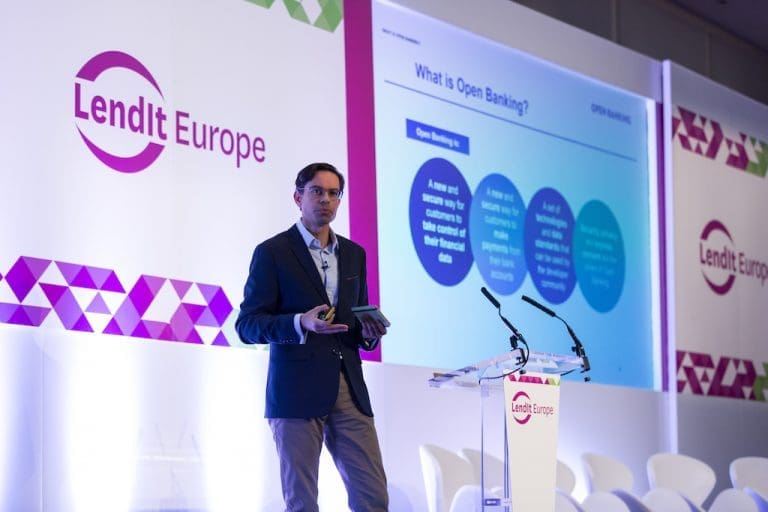
[Editor’s note: This is a guest post from Ryan Weeks, formerly with Dow Jones and AltFi, covering fintech. This is the last in our four part series (here is part one, part two and part three) he is writing for us on the UK fintech market in the run-up to LendIt Fintech Europe on October 19-20.]
After a slow start, open banking – the regulatory framework under which the UK’s nine biggest banks must share transaction data with fintechs and other third parties – seems at last to be making a dent in financial services.
For evidence of the momentum it has established in the past nine months, look no further than the flurry of recent M&A activity.
TrueLayer, one of a group of intermediaries that sit between the big banks and consumers of transaction data, closed a $25m fundraising in September – taking the total amount it has raised to date to $72m.
Swedish open banking platform Tink bought UK-based OpenWrks’ aggregation platform in September, some six months after splashing $17.2m on Eurobits, a Spanish aggregator.
In August, card giant Visa’s $5.3bn proposed acquisition of Plaid, a US data-sharing infrastructure provider with a UK presence, was cleared by the Competition and Markets Authority (CMA).
Leon Muis, chief business officer of Yolt Technology Services (YTS), said it is encouraging to see so much activity.
“The market is so big that I strongly believe that for now at least there’s enough space for multiple parties,” he added.
YTS is currently fielding 26 million API calls every week, which it says is roughly 20% of the total volume in the UK.
In the wider industry, it is likely no coincidence that the data shows that usage of the open banking framework has surged in 2020, despite the pandemic.
The Open Banking Implementation Entity (OBIE), created by the CMA to oversee the regime in the UK, announced last week that the number of people using products powered by open banking has more than doubled since January to roughly two million.
That represents growth of around 160,000 new users a month this year, excluding April and May, when growth plateaued.
Imran Gulamhuseinwala, who runs the OBIE, said those users are active and are leveraging the open banking framework at least once a month.
“These are really good results for us that I’m very pleased with,” he said.
Gulamhuseinwala clarified, however, that the majority of the two million customers are using open banking for data aggregation purposes, rather than for account-to-account payments – a future application of the initiative that has not yet come to fruition.
That usage may not equate to a great deal more awareness of the scheme, but that doesn’t necessarily matter.
“I don’t think that they [the two million users] are particularly aware of open banking. It’s certainly not our intent to try to force them to be aware of open banking,” said Gulamhuseinwala.
“It’s just the underlying road by which customers, by which third parties, can build propositions in a very safe and secure way. But customers don’t wake up in the morning thinking ‘yay I want to use open banking’.”
The fact that people are using the framework, though, would suggest that UK policy makers may have got it right when they chose to create the OBIE to guide open banking.
Keith Grose, head of UK at Plaid, certainly thinks so.
“Open Banking in the UK is miles ahead of anywhere else in Europe from what we’ve seen,” he said.
YTS’s Muis echoed this, saying that in other parts of Europe, “it is really everybody for themselves and sometimes you don’t hear back from a bank for three months when you send them a question on their APIs”.
It is for this reason that some expect the OBIE to lead the development of open finance, a new initiative which would apply the principles of open banking to savings, insurance, mortgages, investments, pensions and consumer credit. The Financial Conduct Authority is currently consulting on whether to launch such a scheme.
Another frontier for open banking is the so-called “premium API”. The idea here is that banks that are already required to share data by law could begin deliver a richer package of data to select parties, in accordance with commercial agreements.
In the coming months, however, it may turn out that the idea of premium APIs is subsumed by a comprehensive open finance framework.
YTS’s Muis thinks talk of premium APIs has “pretty much died down a bit”, the reason being that the implementation of an open finance framework would render them pointless – since banks and other businesses rich in customer data would have to share richer data sets by law anyway.
But Gulanhuseinwala nevertheless sees premium APIs as an exciting new development. And if anyone knows what the banks are thinking when it comes to data-sharing initiatives, it’s him.
“I think it will be a coalition of like-minded banks which will look to some entity to try to coordinate it for them, at least from a technical point of view, and then they will go into the market and strike their own contracts,” he said.


